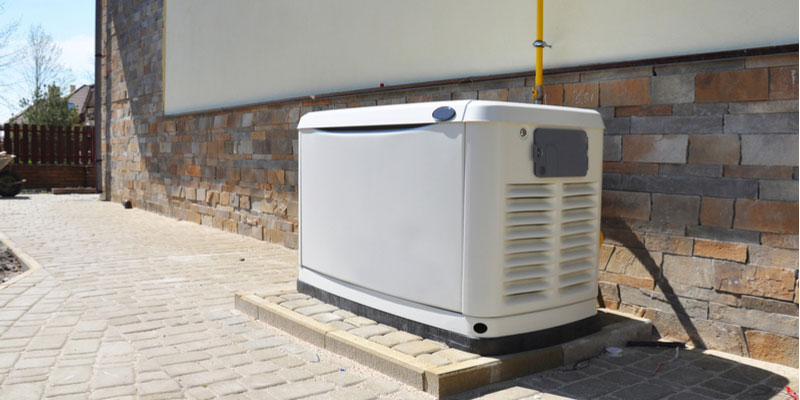There are several reasons a generator will fail. It might have a bad battery, be out of fuel, or have a dry belt, among other possibilities. Without preventative maintenance, generator problems are inevitable. So, the first step to preventing common generator problems is to make sure your unit is properly maintained. Fun fact: the great thing about renting generators from Cooling Power is that we take care of all the maintenance.
Regular maintenance can help pinpoint just about any of the following issues before they cause the entire generator to malfunction.
#1. Generator is Out of Fuel
Lack of fuel is one of the most common reasons a generator fails to turn on. Make it the first thing you check if your generator won’t start. There’s a chance that low fuel can signal a fuel leak. For the most part, fuel leaks relate to human error or pump system error.
There’s always the possibility that the fuel level gauges do not read the correct gas levels. Since generators sit in the same position without any movement, fuel is prone to becoming stagnant. Some systems have automatic shutdown features if they get too low in fuel.
#2. Block Heater Wear and Tear
Speaking of coolant, the block heater is tasked with heating coolant so that it circulates the engine block. Its job is to keep the engine block warm to prevent thickening of oil. Eventually, all block heaters fail because they run all day, every day.
While block heaters are often used in cold climates to help start the engine, they offer benefits in warm climates too. How? Block heaters reduce wear and tear by maintaining more consistent temperatures throughout the cooling system.
#3. Low on Coolant
A failed block heater is one of several things that can result in low coolant temp. That’s because the block heater is designed to heat up coolant so that it travels throughout the system. Another common reason for issues with coolant include an external or internal leak. Leaks commonly source back to the block heater hose. That’s because the block heater produces so much heat, which has the most contact with the hose, leading to faster wear and tear. Some machines will signal an alarm and/or automatically shut down when coolant levels dip too low.
#4. Dead Battery
The typical generator battery will last around four years, give or take some. Routine maintenance can help detect a dying battery in need of replacement before it goes bad.
#5. Not in Auto
If the machine reads “Not in Auto,” or something similar like “breakers open,” “emergency stop buttons activated,” it has likely been switched into “Off/Reset” via the main control switch. To fix this issue, the generator must be physically reset to turn off the alarm.
#6. Fuel Leaking Back into Tank
The most common cause of this problem in newer generators is not getting enough use. Additionally, due to today’s rigorous emission requirements, fuel systems are more prone to air impacting it from starting up.
Bad belts in older generators are more likely associated with a leak in a line or check valves failing to store fuel in engine.
#7. Pest Infestation or Weather Damage
Oftentimes, the weather is at its worst when you need a generator; say for instance during a hurricane. Finding the right protected location for your generator is key. Another possible outdoor issue is a pest infestation. Regularly check over your generator for any signs of chewing, shredded bedding, feces, and so forth.

